North Korea undergoes an image change ahead of summits
- Published
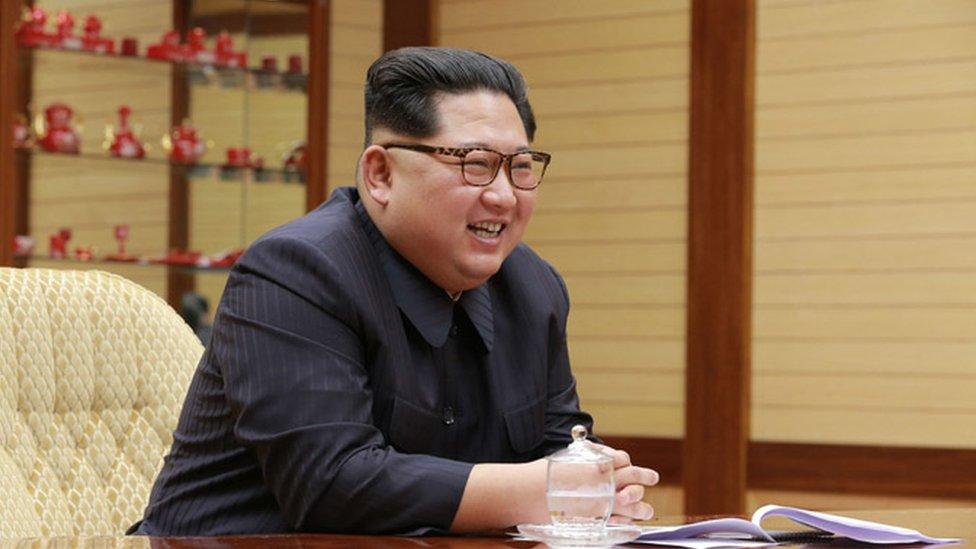
No more cigarettes: Has Kim given up, or is this a subtle change in his image?
North Korean leader Kim Jong-un appears to have undergone a minor media makeover as he prepares for a series of meetings with former sworn enemies.
He's due to meet South Korean counterpart Moon Jae-in next week for the first inter-Korean summit in over a decade, and US President Donald Trump within the next couple of months.
North Korean state media are toning down their traditionally hostile rhetoric, and presenting the North Korean leader as a warmer man, with a cleaner image.
The once ever-present cigarette between Mr Kim's fingers is now conspicuous by its absence, and his wife, Ri Sol-ju, may be set to play a more active role in the traditionally male-dominated regime, now being referred to as the "First Lady".
Perhaps in attempt to show the North's sincerity ahead of next week's peace talks, nuclear missiles have also virtually disappeared from the country's TV screens.
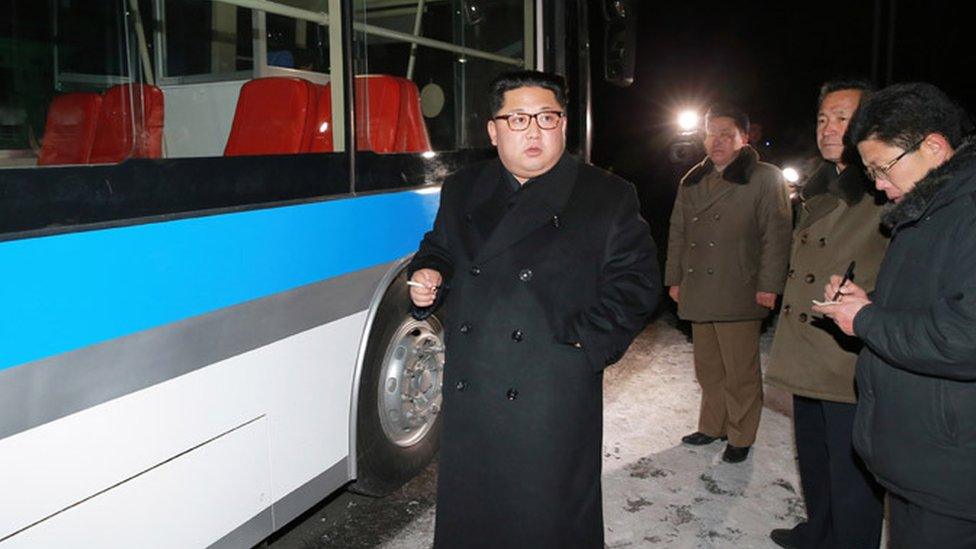
One last puff: North Korea's Supreme Leader is known to be a heavy smoker
Family man: Softening Kim's image
South Korean newspaper Dong-A Ilbo noticed this week, external that Mr Kim hasn't been seen in public with a cigarette for some time, speculating that this is part of a softening of his image.
Known to be a heavy smoker, Mr Kim was last photographed smoking in early February while taking a midnight bus ride around Pyongyang.
Recent newspaper photos show him without a cigarette, and ashtrays are no longer provided for him at official functions.
There have been subtle changes in the way he's portrayed on TV, too.
Archive footage of the North Korean leader attending military or agriculture events is normally a firm fixture on North Korean television. However, there's been an increase in footage of him visiting children, a tried-and-tested method of projecting the leader as a father of a nation.
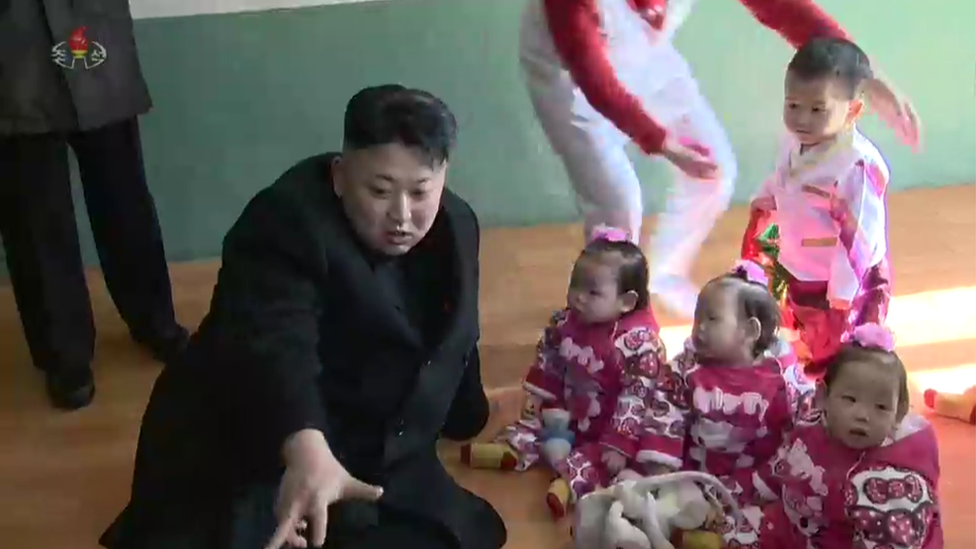
Daddy Kim: The Korean leader, himself a family man, is sometimes shown offering on-the-spot guidance to children
First Lady
Also coming to the fore is Mr Kim's wife, Ri Sol-ju.
Her first solo state engagement this week, accompanying a visiting Chinese envoy to the ballet, afforded her the titles "First lady of the DPRK" and "Respected Madame Ri Sol-ju" for the first time on television and in print media.
In previous appearances, Ms Ri has been relegated to the background and simply referred to as "his wife".
But Central TV this week has placed Ms Ri centre stage, and dressed in pink, while watching a ballet performance of Giselle by visiting Chinese dancers.
This marked the first time in 45 years that any North Korean first lady has taken the limelight in such a way.
It comes in the wake of Mr Kim's increasingly powerful younger sister Yo-jong stealing the show at the March Winter Olympics opening ceremony in South Korea's Pyeongchang.
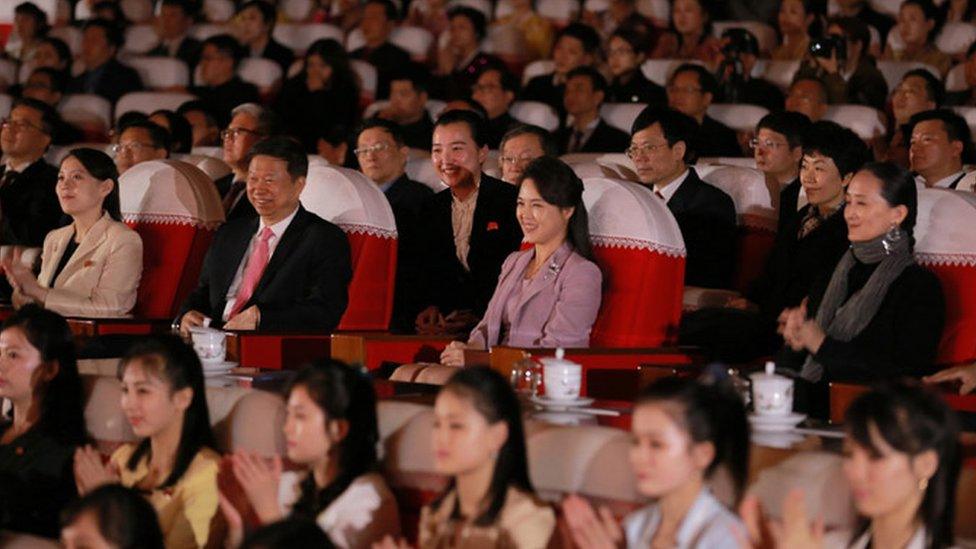
North Korean first lady Ri Sol-ju takes centre stage. Kim Jong-un's sister Yo-jong is far left
No more dotards
Foreign governments and Korea-watchers have become used to North Korea's way with words when it comes to insulting its foes.
Never holding back with its insults, it famously called US president Donald Trump a "dotard", his predecessor Barack Obama "a pimp", and now-jailed former South Korean leader Park Geun-hye "an old witch and a prostitute".
But now its insults aimed at the Southern leadership have largely disappeared, and the media has spared its barbs for those that are opposed to the inter-Korean peace process.
The Minju Choson newspaper targeted the conservative Liberty Korea Party this week as "riff-raffs" and "mentally deranged persons" for questioning Pyongyang's motives for seeking peace.
Also in the firing line is Japan's government led by Prime Minister Shinzo Abe.
The paper claims Mr Abe is trying to re-launch Japanese "imperial military expansionism" and calls him "truly pitiful," and his government "crafty Japanese reactionaries".
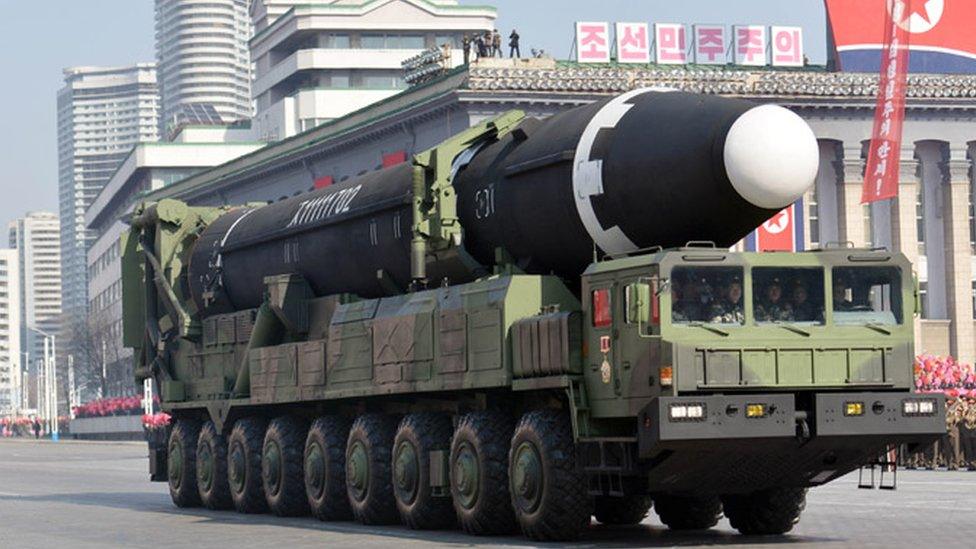
Hwasong-15 missiles on the streets of Pyongyang caused excitement in February, but they've now disappeared from North Korean media
Where have all the missiles gone?
When North Korea held a military parade on 8 February, the day before South Korea's Winter Olympic opening ceremony, it was seen as a setback to relations along the peninsula.
But since then, the missiles - a firm fixture on North Korean TV screens throughout 2017 - have largely disappeared from the media.
That's not to say that military hardware have completely disappeared from the nation's screens. North Korea's political and economic life revolves around Kim Il-sung's Songun policy, where the military comes first in all things in the country.
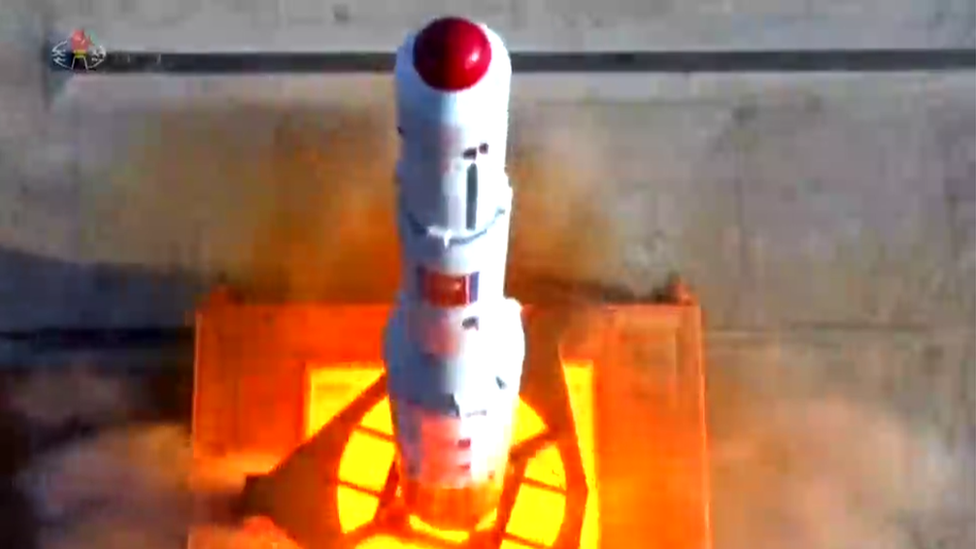
With missile launches off North Korean TV screens, the 2016 Kwangmyongsong-4 launch is a suitable replacement
This means you're never far from a military uniform on Central TV, but action sequences have given way to a surge of entertainment programming.
While the usual Communist fare of patriotic songs, band concerts, factories and farm workers is still there, all those explosions and roaring (if ancient) jet fighters have been replaced by an increase in arts programmes and an emphasis on youth.
Broadcast media and newspapers in North Korea are all state-controlled, and Central TV is the only means of information for many citizens.
Whether these changes are permanent or temporary is yet to be seen, but it's clear that Pyongyang is readying its people for whatever these vital few weeks may bring.
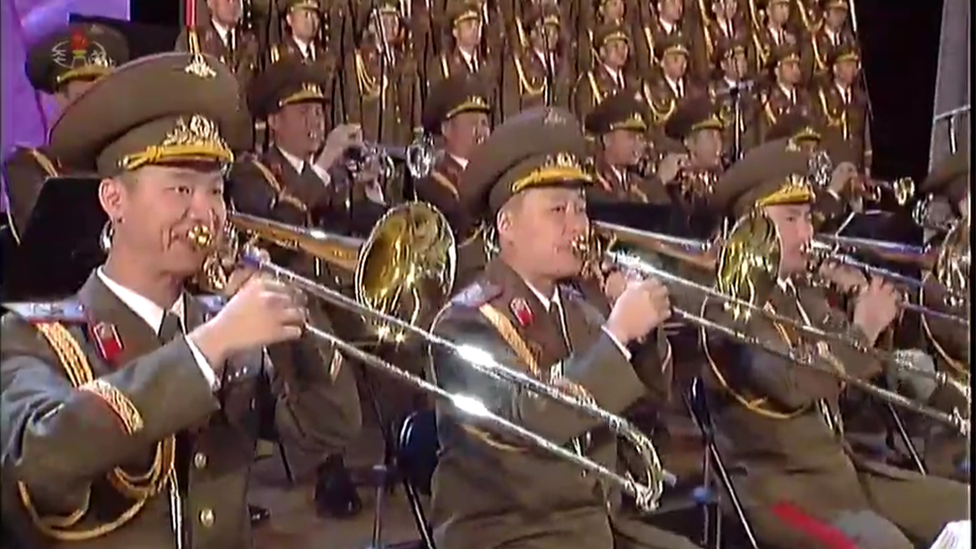
Bring on the band: Concerts and the arts replace military broadcasts in the TV schedules
BBC Monitoring, external reports and analyses news from TV, radio, web and print media around the world. You can follow BBC Monitoring on Twitter, externaland Facebook, external.